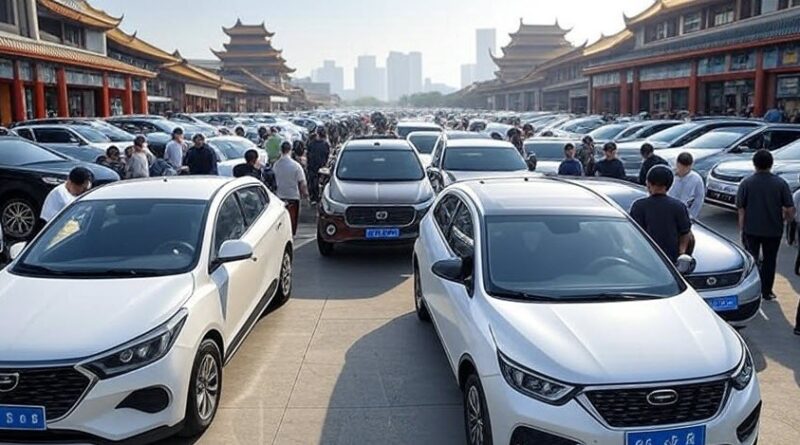World’s Auto Supply Chain in the Hands of a Chinese Bureaucrats
The global auto industry depends heavily on a few key materials. Rare earth magnets, lithium, semiconductors, and battery components all play a major role in building modern electric vehicles. Right now, a small group of Chinese government officials has direct control over some of the most critical parts of that chain. Here’s how we got here, and why it matters. World’s Auto Supply Chain in the Hands of a Chinese Bureaucrats
China Controls Rare Earth Magnet Exports
Rare earth magnets are used in electric motors, steering systems, infotainment units, and more. In 2024, China placed these magnets under export control. This means that any company wanting to buy and ship them out of China now needs a special government licence.
That licence must be approved by a small team inside China’s Ministry of Commerce. According to reports, the team handling approvals originally had just 30 people and has since grown to around 60. Yet global demand has exploded, and even small delays on their end can now affect supply chains around the world.
Why This Matters for Car Makers
China currently produces over 90 percent of the world’s rare earth magnets. On top of that, it dominates global production of EV battery materials, semiconductors, and precision automotive components.
That means major manufacturers like Tesla, Ford, Volkswagen, and Toyota are all directly or indirectly dependent on Chinese exports. Without magnets, an electric motor won’t run. Without semiconductors, most new cars can’t function at all.
Even minor changes in export licence timelines can cause assembly lines to slow down or stop altogether.
Factories and Suppliers Are Already Feeling It
Since these export controls came into effect, manufacturers across the United States, Europe, and Asia have reported delays in getting the materials they need. Some auto suppliers are waiting weeks or even months to receive magnet shipments that used to arrive within days.
This bottleneck has triggered warnings from major trade associations and logistics experts, who say the industry is now vulnerable to paperwork delays and political changes in Beijing.
It’s Also About Political Power
China’s move to tighten its grip on key export materials isn’t just about economics. It’s also about leverage.
By controlling the flow of essential parts, China strengthens its position in global trade negotiations. Western governments have taken note, and many are investing in building local supply chains. But those efforts take years, not months.
Meanwhile, China can use its control of materials as a bargaining chip in disputes over tariffs, technology, and foreign policy.
Can the Rest of the World Catch Up?
Governments in the US, Europe, India, and Australia are now funding projects to mine rare earth materials, build new magnet factories, and reduce dependency on Chinese exports. Companies are also exploring alternatives like rare-earth-free motors or recycling existing materials.
But as of now, China still holds a clear lead.
For example:
- The US doesn’t have a full rare earth magnet supply chain ready yet
- Australia and Brazil can mine the materials, but don’t have the factories to refine or assemble them
- Many companies still rely on Chinese partners to finish final components
The Bigger Risk for Drivers and Buyers
What does this mean for everyday drivers?
- Electric cars could become more expensive if rare materials are harder to get
- Wait times for EVs and high-tech vehicles might increase
- Repairs or part replacements could face delays if global inventories shrink
The modern car is more like a rolling computer than a simple machine. When one link in the supply chain breaks—especially a core one like magnets or semiconductors—everything slows down.
Final Thoughts
The fact that the global automotive industry now relies on export approvals from a small group of Chinese bureaucrats shows just how fragile the supply chain really is. Strategic materials like rare earth magnets are no longer just engineering components. They are geopolitical tools.
Unless carmakers and governments invest fast in new local sources, the future of car production will remain tied to decisions made in Beijing. For now, that means the next generation of electric vehicles is in the hands of people few of us have ever heard of—but who have a global impact.
Buying a used VW. Buying used vauxhall, BMW, Jaguar, Ford, Volvo, Range rover, Bentley, Aston Martin, Porsche, Ferrari, Lamborghini, Maserati, Hyundai, Tesla, Honda, Pagani

